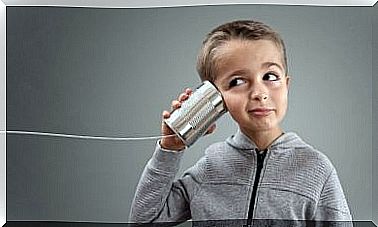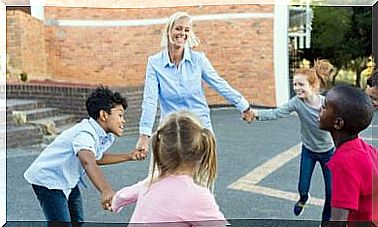Is It Risky To Vaccinate Children?
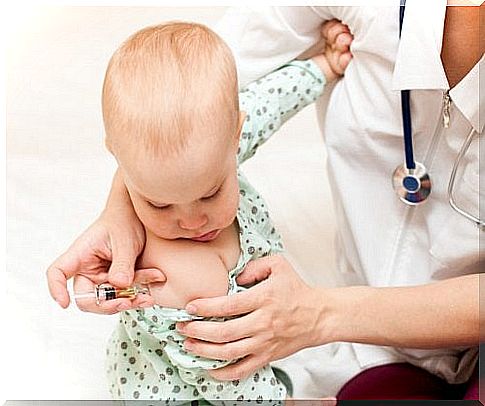
A new discussion is present in pediatric consultations: vaccinating children, yes or no? To give you a clearer perspective we want to explain what’s behind this issue so you can make the best decision.
There are many mothers who today chose to dispense with the recommended vaccination plan. They feel that immunization is not fully effective.
Based on this premise, they believe that it is not worth submitting the little ones to a vaccine that can cause secondary symptoms, such as fever and the weakening of physical conditions.
On the other hand, other mothers continue to trust the preventive nature of vaccination. They believe it is a measure of health from childhood to adulthood.
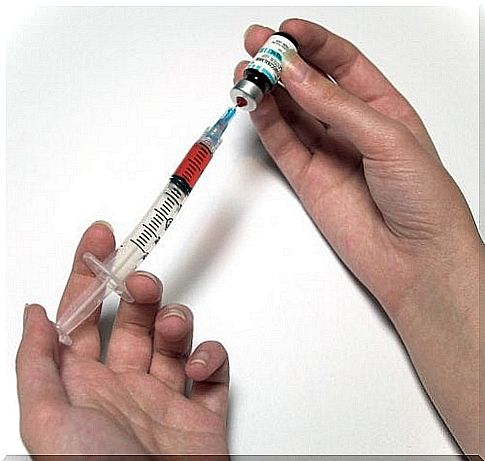
How do vaccines work?
The certainty we have on this subject is that vaccines are formulas created in the laboratory to prevent or reduce the effects of a specific disease.
Prevention will always be the best weapon in terms of health
To create vaccines, scientists use weakened agents of the same disease they want to prevent. These are combined with other elements that are intended to stimulate the immune system when administered orally or subcutaneously.
The goal is for the recipient’s body to identify the weakened agent in the vaccine. After being detected as a possible threat, biological mechanisms are activated to neutralize them.
The result is that, in the future, the vaccinated organism will be prepared to fight a real disease. If the disease is contracted after vaccination, the symptoms and intensity will be significantly lower.
Who is opposed to vaccines?
Although the vaccination system and the functioning of the immune system seem simple, there are movements in the United States and Spain – and more recently in Latin America – that oppose mandatory vaccination of children.
Among some arguments, they highlight the idea that the non-appearance of a disease is not related to the vaccine, but rather to the opportunity to live in environments with a low risk of contamination.
Those people who refuse to receive vaccines, and to vaccinate their descendants, argue that in some situations the side effect of a vaccine can even be stronger than the disease it is intended to prevent.
There is no lack of non-governmental organizations that have waged a battle against what they call “the monopoly” of large laboratories. These are accused of profiting from mandatory vaccination in many countries.
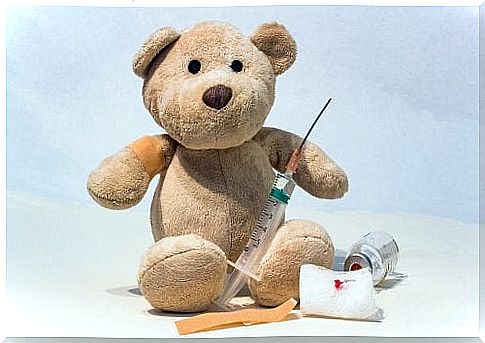
What does the World Health Organization recommend?
Faced with movements that are against the vaccination system, the World Health Organization knew how to respond to criticism and focused its actions on guiding families, which it asks to protect the most vulnerable people: children, the elderly and pregnant women.
WHO advocates the power of vaccines to eradicate various diseases
Researchers associated with the WHO are emphatic that a group of people has the opportunity to underestimate the effectiveness of the vaccine in diseases such as measles precisely because it is an eradicated disease, thus, these people do not know its lethal power in practice.
They emphasize that eradication is a product of the rigor with which the fight against this deadly disease was carried out. We are talking about an agent that can remain active, but which, when faced with a barrier of vaccinated people, cannot spread.
The big risk of not vaccinating
Not vaccinating a child, among other things, is denying the possibility that the child’s body is immunologically prepared to face infections and viruses of any kind.
A mother may feel that her child is not growing up in a threatening environment where deadly diseases swarm. But when in doubt, it is always better to prevent.
Of course, vaccination cannot be a measure imposed by force. Each one has the right to decide what he considers convenient for his health, and for the health of his family nucleus.
However, it is necessary to remember that in the case of newborns and infants, the immune system is not yet prepared to face the great diversity of external agents to which they are exposed from the first moment they leave the mother’s womb. When it comes to vaccines targeted at adults and seniors, they can decide what is best for themselves.
But when it comes to children’s parents, when it comes to health, we must trust the fact that vaccines have been successful in fighting epidemics and eradicating disease for decades. So, if we think about it, it’s not worth putting the health of our greatest treasures at risk.





